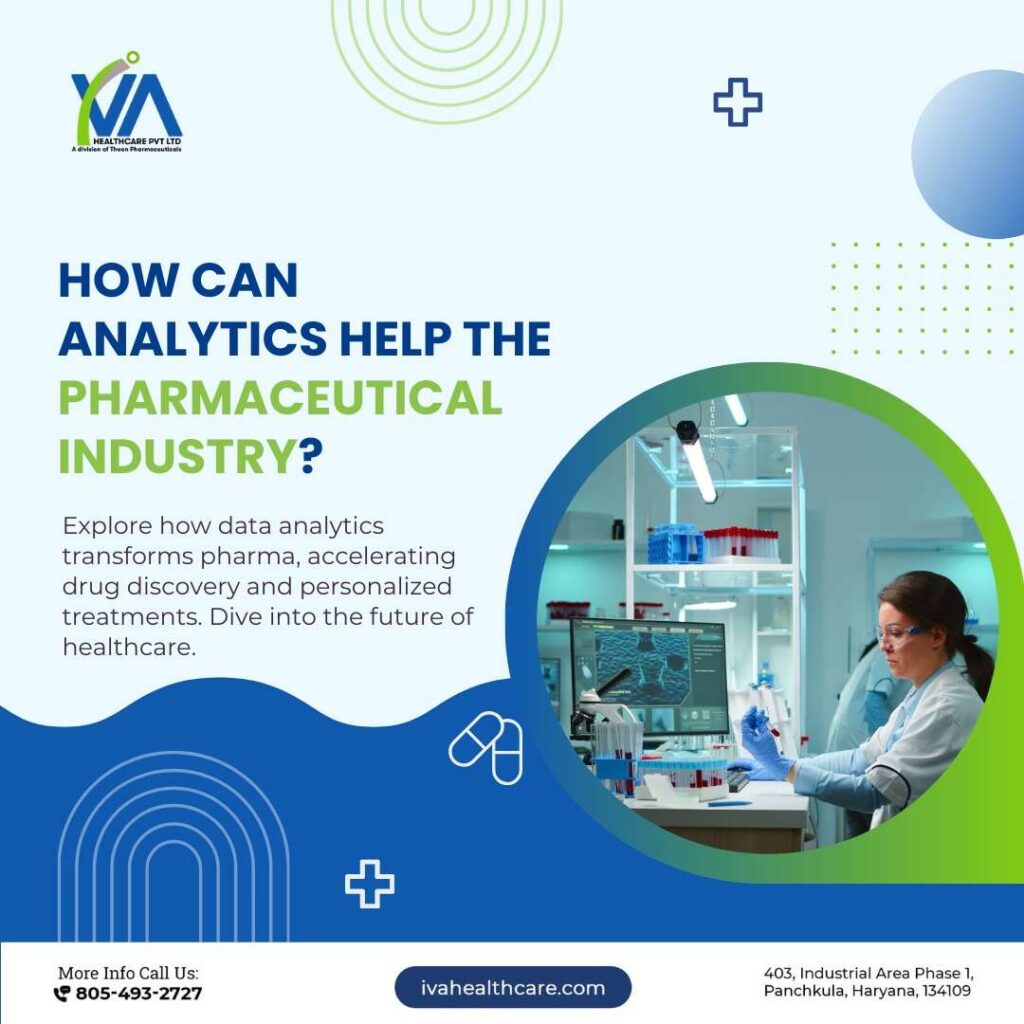The pharmaceutical industry, including PCD Pharma Franchise companies, is undergoing a transformative era. Fueled by the ever-growing mountain of data, analytics is emerging as a game-changer, impacting every facet of drug discovery, development, and commercialization.
By leveraging data effectively, all pharmaceutical players, from large research institutions to PCD Pharma Franchise companies, can streamline processes, optimize decision-making, and ultimately deliver life-saving medications to patients faster and more efficiently.
The use of analytics help the Pharmaceutical industry by providing valuable insights that can empower PCD Pharma Franchise companies to make informed choices about product selection, marketing strategies, and distribution channels. This data-driven approach is pivotal in enhancing the efficiency and effectiveness of healthcare delivery.
From Big Data to Smart Insights
The pharmaceutical industry generates a vast amount of data from various sources:
- Clinical trials: Data from clinical trials, including patient demographics, medical history, treatment responses, and adverse events, holds immense value for understanding drug efficacy and safety.
- Electronic health records (EHRs): EHRs provide a wealth of real-world data on patient demographics, diagnoses, medications, and treatment outcomes. This data can be anonymized and analyzed to identify trends and inform drug development strategies.
- Genomics and bioinformatics: Advances in genomics are yielding a deeper understanding of the genetic basis of diseases. By analyzing genetic data, researchers can develop targeted therapies and identify patients most likely to benefit from specific medications.
- Sales and marketing data: Sales data helps understand market trends, competitor activity, and physician prescribing patterns. This information can be used to optimize marketing strategies and target specific patient populations.
- Social media and online forums: Social media platforms and online patient forums can provide valuable insights into patient sentiment, treatment experiences, and unmet medical needs.
Transforming Drug Discovery and Development
Traditionally, drug discovery has been a slow and expensive process with a high failure rate. Analytics can significantly improve this process by:
- Identifying promising drug targets: By analyzing large datasets of genetic and biological information, researchers can identify potential targets for new drugs more efficiently.
- Predicting drug efficacy and safety: Advanced analytics can be used to analyze data from pre-clinical studies to predict how a drug might behave in humans, reducing the risk of failure in later stages of development.
- Optimizing clinical trial design: Analytics can be used to design more efficient clinical trials, such as selecting the right patient population, determining the optimal dosage, and predicting potential side effects.
- Real-world evidence generation: By analyzing real-world data from EHRs and other sources, pharmaceutical companies can gain valuable insights into their drugs’ long-term safety and effectiveness after they reach the market.
Enhancing Commercialization and Market Access
Once a drug is developed, analytics plays a crucial role in bringing it to patients effectively:
- Market segmentation and targeting: By analyzing sales data and patient demographics, companies can identify specific patient populations most likely to benefit from their medications, allowing for targeted marketing campaigns.
- Pricing and reimbursement strategies: Analytics can be used to optimize pricing strategies based on market dynamics and payer preferences. Additionally, real-world data can be used to demonstrate a drug’s value proposition to payers, facilitating reimbursement decisions.
- Pharmacovigilance and drug safety monitoring: By analyzing data from various sources, pharmaceutical companies can proactively identify potential safety risks associated with their drugs and implement appropriate measures to mitigate them.
Challenges and Considerations
While the potential of analytics is undeniable, there are challenges to consider:
- Data quality and integration: The vast amount of data from various sources needs to be standardized, integrated, and cleaned to ensure reliable insights.
- Data privacy and security: Patient data privacy is paramount. Robust data security measures and adherence to data privacy regulations are essential.
- Talent and expertise: Extracting meaningful insights from complex data sets requires skilled data scientists and analysts who understand the pharmaceutical industry.
The Future of Pharma: Data-Driven Innovation
By embracing data analytics, pharmaceutical companies can move beyond traditional methods and usher in a new era of data-driven innovation. This will lead to:
- Faster drug development: Analytics can streamline drug discovery and development processes, bringing life-saving medications to patients faster.
- More effective and targeted therapies: Data-driven insights can lead to the development of personalized medicine and therapies tailored to specific patient needs.
- Improved patient outcomes: By leveraging real-world data, pharmaceutical companies can continuously monitor drug safety and effectiveness, improving patient outcomes.
The pharmaceutical industry is on the cusp of a data-driven revolution. By harnessing the power of analytics, companies can transform drug discovery, development, and commercialization. This will lead to a future where innovative medications reach patients faster, with greater efficacy and safety, ultimately contributing to a healthier world.

